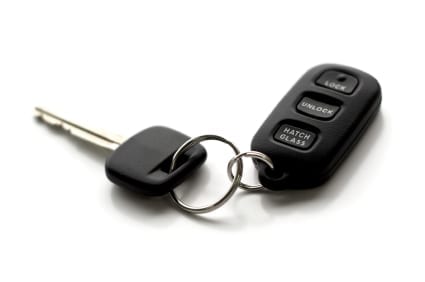The 100 Deadliest Days (Memorial Day to Labor Day) for teens has started and we wanted to share some tips to help parents keep their teenagers safe behind the wheel.
We had the chance to talk with Bill Wade, National Program Manager for Tire Rack Street Survival (a national non-profit teen driving program) and here’s what we learned:
Why is there an increased risk for teen drivers during the summer?
The 100 Deadliest Days occur because teen drivers have more access to the car, are out being social or traveling to jobs, etc. while out of school during the summer months.
What factors are responsible for the high rates of teenage car accidents?
According to studies, teenage drivers tend to underestimate hazardous driving situations and are less able than older drivers to recognize dangerous situations.
– Teenage drivers are more likely to speed and tailgate.
– Having male teen passengers in the car has been shown to increase the likelihood of high risk driving behaviors among teenage male drivers.
– Of male drivers killed between 15 and 20 years of age 38% were speeding and 24% had been drinking and driving.
– Teens also have the lowest rate of seat belt use. According to surveys about 10% of high school students report they do not wear seat belts.
What is the leading cause of teenage car accidents?
Distractions are the leading cause, but this is a huge vague category. Nearly half of the fatal crashes involving 16-year-old drivers were single vehicle crashes, so this can be interpreted to mean that some factor made them become distracted i.e. phone use, adjusting the radio, eating/drinking, talking with passengers etc. Distractions put the teen into a situation they couldn’t handle, ultimately causing a crash.
Inexperience behind the wheel plays a huge role in accidents. Overcorrecting when dropping two wheels off the edge of the pavement and not knowing what to do is an example. 60% of the incidents happen in urban areas, 60% of fatalities happen on rural roads, 40% of those occur on curves.
Is alcohol a contributing factor, or one that parents should be concerned about?
Yes, parents should be concerned. However, alcohol accounts for less than 25% of fatal teen car crashes. Inexperience behind the wheel and simple driver errors are the leading causes.
What measures can parents take to prevent their teenager from getting into a car accident?
Parents should make sure their teen is mature enough to start driving. Driving shouldn’t be about the parents’ convenience, it’s about the teen having the maturity level to handle the responsibility. Proper training and getting teen drivers to understand the major responsibility that comes with driving a 3,500 pound machine filled with gasoline.
Put down the phone. The big buzz now is texting and phone use so parents have to set the example. When they get in the car, they too should put their phone away. A parent sending a work email is the same as their teen texting ‘lol’ to a friend. It’s not any better with a bluetooth hands free device. It’s a cognitive distraction. It’s not about where your hands are it’s about where you head is and it needs to be kept in the game i.e. driving the car.
Are there certain times that are the worst for teens to be driving?
Forty-one percent of fatal crashes involving teenagers occur at nighttime (between 9:00 p.m. and 6:00 a.m.). 55 percent of motor vehicle crash deaths among teenagers occur on Friday, Saturday, or Sunday. Most GDL’s now restrict driving late at night.
What tips can you offer teens to drive safely?
Treat driving with respect. This is a life changing activity, and can be positive and/or negative, depending on what you do with it. Slow down. Put more space between you and the car in front of you. Remember that at 60 mph your car travels the length of a high school basketball court per second and it takes much longer to stop that car than you think. Lastly, PUT THE PHONE AWAY, there is no reason to be using a phone in the car. There is no call or especially a text worth dying for.
Are there certain driving skills you recommend parents to teach their children?
Although most states have now enacted some type of graduated drivers licensing (GDL’s) the parents are often not the best equipped to teach their teen to drive. In most cases, parents did not received the best training back in their youth, have developed bad habits over the years, or they choose to spend more time parenting their teens about school, friends, relationships etc. instead of proper seat position, spacing between the car in front of you, car control, etc. All of the above are important parent/teen issues but in most cases driving education receives the short end of the stick when it comes to time allocation.
I encourage parents to seek outside help and read about teaching their teen properly. Parents should drive with their teens as much as possible, even if it’s just a 15 minute trip to the grocery. Have them drive at night and once they get more experience, say 20 hours or so, have them drive in the rain during the day and night, and even on Interstates. Go to a big parking lot away from other drivers and practice braking, panic type stops at 35 mph and faster. Make the ABS come on so your teen feels the pedal pumping and is not surprised when it happens to them on the road. Use that same parking lot and practice skid recovery when it snows/sleets. Parents can use this skill set as well and likely need to brush up on the practice.
Concerned parents or community leaders interested in requesting a Tire Rack Street Survival school in their area or to learn more about the upcoming schedule, can visit www.streetsurvival.org.





